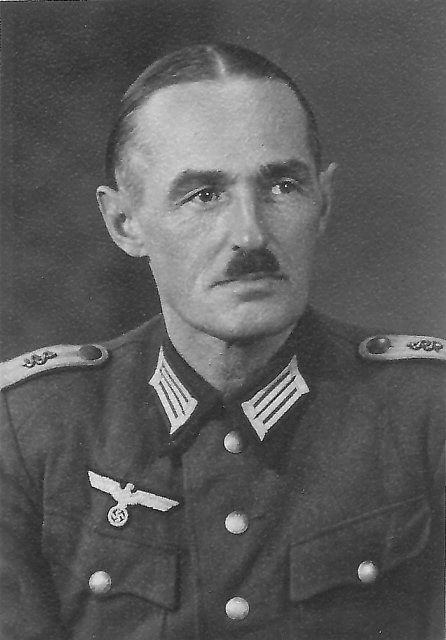
As a university student, he fought with the Estonian cavalry in the 1920 war of independence against the Russian Bolsheviks. In between the World Wars he became a doctor. Things were always precarious for the Baltic countries, Finland, Belarus and Poland, especially after the signing of the Molotov-von Ribbentrop pact between Russia and Germany.
At the outbreak of war, Russia issued an ultimatum to Estonia: let us occupy your territory or we will smash you. Then Operation Barbarossa exchanged one set of invaders for another – however in the interim, the Soviets had worked the communist play book: anyone of influence was shot or sent to labour camps in Siberia for systematic starvation. Political and military leaders, religious ministers, journalists, even teachers were rounded up in the purges and were never seen again. The German occupiers weren’t fantastic, but they were more reasonable. Hitler even decided Baltic people were racially acceptable, unlike their poor suffering Slavic neighbours.
As the tide of the war turned, the Germans looked to conscripting the locals into fighting units for the Eastern front. They were not considered totally friendly, so Himmler eventually suggested that they be brought under the SS where they could be closely monitored. Being a doctor, my grandfather was assigned to a mobile army hospital. Like regular German troops, they received excellent training and privileges such as being allowed home on leave.
At the beginning of 1944 Estonia was once again threatened by the advancing Russian front, leading to the battle of Narva. The 20th Estnische Waffen SS division fought a dogged defence alongside other foreign divisions such as the Nederlanders and Danes. However, the outcome was inevitable and the Germans offered refuge and transport for those that wanted to leave. My grandmother, having had her post-master brother executed by the Soviets, and having a husband in the German forces, decided it was best not to hang around and evacuated with her boys to northern Germany in September 1944.
My grandfather had many harrowing events escaping from the advancing Soviets, but eventually rejoined his family in Scwartzenbeck where he served as a doctor for the British administration in Hamburg. This photo is one of only two that remain of him in uniform. All families destroyed any photos with evidence of their men having been in the Waffen SS – occupying foot-soldiers had no time for nuances of foreign politics.
